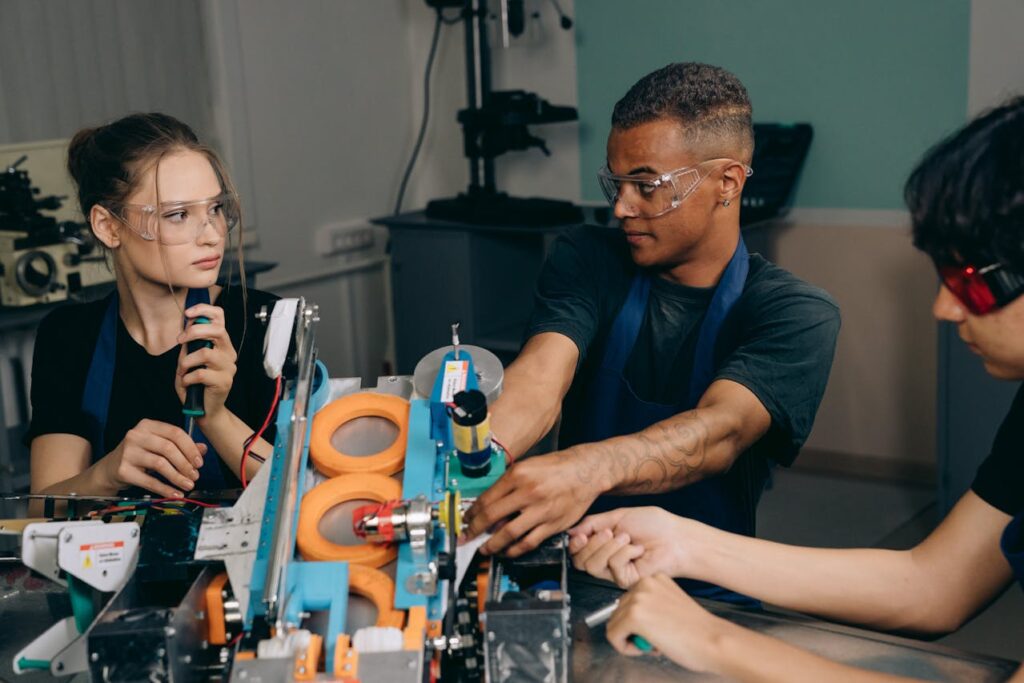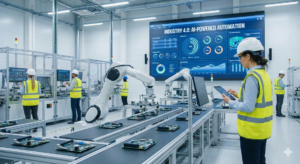Artificial Intelligence in Education: Student-Centered Personalized Learning Systems

Artificial Intelligence in Education: Student-Centered Personalized Learning Systems
Artificial intelligence (AI) has already started to transform almost all facets of contemporary life, and the field of education is not immune to these changes. Although standardized teaching approaches are often used in traditional classrooms, the majority of children do not learn in this manner. There are some who are able to thrive in language but have difficulty in science, while others need a greater amount of time to fully understand mathematical ideas. Artificial intelligence (AI) is increasingly being used to provide personalized learning experiences. This approach to education allows students to study at their own speed, in accordance with their own interests and talents. In the years to come, this method has the potential to completely change the way that information is presented, digested, and used.
1. The Change from Standardized Education to Personalized Learning
Schools have depended on teaching approaches that are designed to be suitable for all students for decades, despite the fact that these techniques may not completely satisfy the requirements of each individual learner. Standardized curricula are efficient, but they often fail to take into consideration variations in learning speed, understanding, and motivation. The goal of customized systems that are powered by artificial intelligence is to close this gap by dynamically modifying lessons and resources in accordance with each student’s performance and preferences.
2. What are the characteristics of a personalized learning system that is powered by artificial intelligence?
Algorithms are used by a learning system that is driven by artificial intelligence (AI) to evaluate student data, which may include test results, the amount of time spent on activities, or even the degree of student involvement; after this evaluation, the instructional material is modified in accordance with the data. Each student is presented with an individualized learning path that is meant to maximize their success in learning, as opposed to being given the identical lesson plan as their classmates.
3. Information and Feedback in Real Time
The capacity to provide feedback without delay is one of the most powerful benefits that artificial intelligence (AI) offers in the field of education. It is very uncommon for students to have to wait days or even weeks for their marks to be available to them when conventional procedures are used. Artificial intelligence (AI) systems, on the other hand, have the ability to assess replies in real time, which allows them to expose errors and provide ideas for improvement. This makes the learning process go more quickly since it makes certain that any mistakes are remedied before they turn into misconceptions that may last for a long time.
4. Delivery of Content That Adapts to the User
When it is necessary, personalized learning systems have the capability to modify the level of difficulty of questions, provide a variety of teaching methods, or include multimedia materials. For instance, if a student has difficulty understanding fractions, the system can reduce the speed at which it progresses, give interactive games, or display video explanations until the learner demonstrates that they have mastered the concept. On the other hand, students who are at an advanced level may go on without being slowed down by the regular curriculum.
5. Identifying Learning Gaps Early
Artificial intelligence (AI) is capable of detecting micro-patterns in student behavior that educators may overlook. The algorithm may be prompted to offer workouts that are specifically tailored to the individual if subtle indicators such as a decrease in involvement or recurring errors in certain kinds of problems are detected. This early diagnosis enables educators to act before small gaps develop into substantial obstacles.
6. Offering Support to Teachers, Not Replacing Them
The idea that artificial intelligence would take the role of instructors is a widespread myth. In truth, customized learning systems perform most effectively when they are used in conjunction with human instructors. Artificial intelligence (AI) may be used to perform monotonous duties such as grading or practice drills, allowing teachers to concentrate their attention on the areas where they can have the most impact, such as mentoring, encouraging, and nurturing creativity. Teachers can also utilize insights given by AI to help them prioritize their efforts.
7. Accessibility and inclusivity are two important factors.
In addition, platforms that are powered by artificial intelligence may be customized to meet the demands of kids with specific needs. For example, children who have dyslexia may benefit from voice recognition technology, while those who have hearing difficulties can benefit from captions that are created by artificial intelligence. Personalized modifications guarantee that all learners, regardless of problems, have equal opportunity to succeed.
8. The Role of Gamification
By turning lessons into challenges that require active participation, gamified artificial intelligence systems make learning more appealing. Students who may normally get disinterested in conventional classroom teaching techniques might be motivated to continue their studies by earning badges, fulfilling missions, or moving through levels. These aspects are customized to suit the particular interests of each person using artificial intelligence (AI), which helps to maintain a high level of motivation.
9. Ethical Considerations and Data Privacy Issues
Artificial intelligence (AI) in education presents legitimate issues around the acquisition of data and the protection of student privacy, despite the fact that the advantages are apparent. It is common for these systems to collect sensitive information, such as the conduct and performance of students, as well as the degree to which they are emotionally engaged. Establishing robust data security and clear use regulations is vital in order to foster confidence between parents, instructors, and institutions.
10. Getting Students Ready for a Future Dominated by Artificial Intelligence
Students also get knowledge with the technology that is transforming the global workforce by experiencing learning that is supported by artificial intelligence. In addition to achieving mastery of their courses, pupils are exposed to a variety of problem-solving techniques, digital adaptability, and self-directed learning abilities. All of these talents are essential in an economy that is driven by artificial intelligence.
11. Difficulties Encountered During Implementation
The difficulties that individualized AI education must overcome are many, in spite of its potential. Schools are faced with the challenge of overcoming obstacles that include the high expense of education, uneven access to technology, and opposition from instructors who have become used to conventional teaching techniques. In order to prevent the perpetuation of inequities, it is of the utmost importance to ensure that artificial intelligence (AI) models are devoid of prejudice.
12. Artificial Intelligence’s Role in the Future of Education
Personalized learning systems may develop into intelligent tutors in the future, which would be capable of not just teaching but also understanding emotional states, stress levels, and learning styles, if we look forward. Students may soon have the opportunity to participate in completely immersive educational experiences that are tailored specifically to their individual needs as these systems become more integrated with virtual and augmented reality.
Classrooms have the potential to become places in which no student feels as if they are lagging behind if artificial intelligence (AI) is used in education. Personalized learning systems are designed to adjust information to meet the specific needs of each learner, taking into account their strengths, limitations, and learning speed. This approach to education may result in a more equal and successful educational experience for all students. Although obstacles like data privacy and accessibility continue to exist, the long-term advantages of individualized learning have the potential to dramatically change the future of education.




